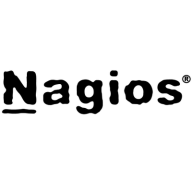

LogRhythm SIEM and Nagios Log Server compete in log management and security information event management, with LogRhythm having an upper hand due to strong support and integration capabilities despite Nagios's appealing feature set and pricing clarity.
Features: LogRhythm SIEM offers advanced security analytics, threat research, and powerful correlation and visualization tools. Nagios Log Server provides robust log collection, flexible archiving capabilities, and an easy-to-use alert system.
Room for Improvement: LogRhythm SIEM needs a streamlined update process, improved documentation, and better usability. Nagios Log Server should enhance integration options, scalability, and broader compatibility features.
Ease of Deployment and Customer Service: LogRhythm SIEM features comprehensive deployment with reliable support but has complex configurations. Nagios Log Server is simpler to deploy but lacks the strong customer service credentials of LogRhythm.
Pricing and ROI: LogRhythm SIEM entails a high initial investment but offers substantial ROI. Nagios Log Server is more cost-effective upfront, though operational costs may dilute ROI, with clear pricing as a strong point.
| Product | Market Share (%) |
|---|---|
| LogRhythm SIEM | 2.3% |
| Nagios Log Server | 0.8% |
| Other | 96.9% |


| Company Size | Count |
|---|---|
| Small Business | 38 |
| Midsize Enterprise | 38 |
| Large Enterprise | 83 |
LogRhythm SIEM Platform is an award-winning platform in security analytics. With more than 4,000 customers globally, LogRhythm SIEM is an integrated platform that helps security operations teams protect critical infrastructure and information from emerging cyberthreats. Ultimately, LogRhythm SIEM is an integrated set of modules that contribute to the security team’s fundamental mission: rapid threat monitoring, threat detection, threat investigation, and threat neutralization. LogRhythm SIEM is for organizations that require an on-premises solution and offers:
● Streamlined workflow
● Secure data access
● Real-time visibility
● A unified user experience
● Management customization
Security information and event management (SIEM) solutions have been evolving for over a decade; their core functionality still acts as the most effective foundation for any organization’s technology stack. A SIEM solution enables an organization to centrally collect data across its entire network environment to gain real-time visibility into activity that may pose a risk to the organization. SIEM technology addresses threats before they become significant financial risks while simultaneously helping better manage an organization’s assets.
LogRhythm SIEM has many key features and capabilities, including:
● High-Performance Log Management: LogRhythm SIEM offers structured and unstructured search capabilities which allows users to swiftly search across an organization’s vast data to easily find answers, identify IT and security issues, and troubleshoot issues. Users can efficiently process and index terabytes of log data daily.
● Network and Endpoint Monitoring: Forensic sensors allow users to gain deep visibility into endpoint and network activity. Users can see behavioral anomalies and better respond to incidents.
● SmartResponse™ Automation: LogRhythm SIEM allows users to centrally execute pre-staged actions that automate incident investigatory tasks and responses.
● Automated Machine Analytics: LogRhythm SIEM's AI Engine continuously analyzes all collected security incidents and forensic data. Security teams are delivered precise, real-time intelligence about risk-prioritized threats.
● Case and Security Incident Management: LogRhythm SIEM offers an integrated workflow so that threats don’t slip through the cracks. Collaboration tools help centrally manage and track investigations.
● User and entity behavior analytics (UEBA): Embedded deterministic UEBA monitoring helps protect against insider threats.
● Security orchestration, automation, and response (SOAR): LogRhythm SIEM includes our embedded SOAR solution to increase efficiency and higher-quality incident response with low mean time to response (MTTR).
Benefits to Using LogRhythm SIEM
● The platform offers great value to security and IT operations. Users have the ability to map their security and IT operations to existing frameworks such as NIST and MITRE ATT&CK.
● The platform offers broad integration across security and IT vendors: Users benefit from support for integration with hundreds of security and IT solutions. In turn, this further extends SIEM capabilities and data collection.
● The platform provides compliance adherence, enforcement, and reporting: The prebuilt compliance modules automatically detect violations as they occur and remove the burden of manually reviewing audit logs.
Reviews from Real Users
LogRhythm SIEM stands out among its competitors for a number of reasons. Two major ones are its ability to be customized and its quick performance of queries.
Jason G., a senior cybersecurity engineer, writes, "I have found the Advanced Intelligence Engine has provided the most value to us because we can customize alarms based on our requirements and have created hundreds of alarms that notify different people for different scenarios."
Andy W., principal consultant at ITSEC Asia, notes, “LogRhythm SIEM covers all our primary security analysis needs. It makes it easier for us to analyze threats and improves our response times. It's a versatile platform that performs queries fast compared to other SIEM solutions.”
Nagios Enterprises delivers official products, services, and solutions for and around Nagios – the industry standard in enterprise-grade IT infrastructure monitoring. With millions of users worldwide, Nagios is the undisputed champion in the IT monitoring space. Our team of dedicated professionals works to ensure total customer satisfaction with all the services we provide. Our extensive network of partners helps extend Nagios services and solutions to new organizations and markets worldwide to meet a variety of business needs. Nagios Enterprises was founded in 2007 by Ethan Galstad. Ethan created what would later become known as Nagios in 1999, and currently serves as the President of Nagios Enterprises.
We monitor all Log Management reviews to prevent fraudulent reviews and keep review quality high. We do not post reviews by company employees or direct competitors. We validate each review for authenticity via cross-reference with LinkedIn, and personal follow-up with the reviewer when necessary.